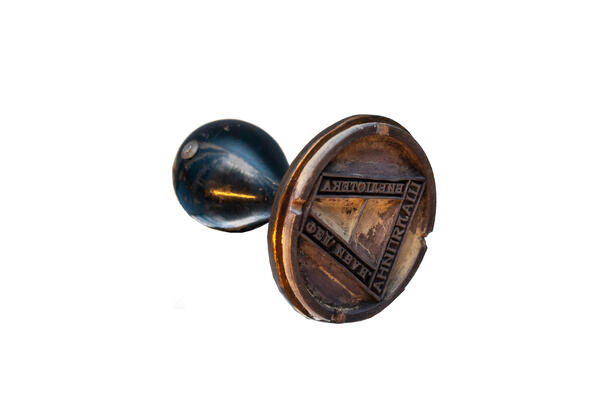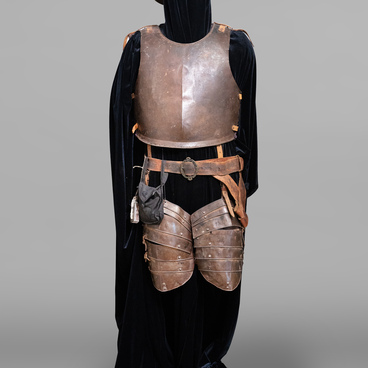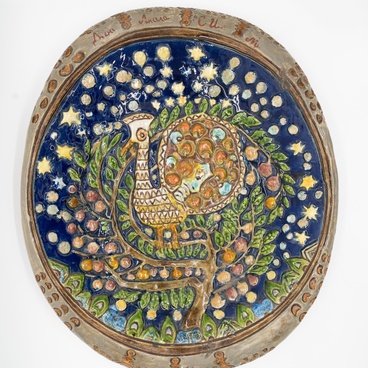“Look at Fedya, he just gobbles up knowledge,” Savva Mamontov said of the young Chaliapin somewhat crudely, but on the whole correctly. Indeed, coming from a peasant family where all generations were illiterate, the great Russian singer Feodor Ivanovich Chaliapin avidly sought knowledge and, of course, books.
On the advice of Alexey Maksimovich Gorky, Chaliapin decided to build his own library. Chaliapin’s library began with collections of works by Russian classics: Pushkin, Lermontov, Gogol, Tolstoy, Turgenev and Goncharov. Chaliapin, who excelled in the role of Boris Godunov, was fond of the works by Alexander Sergeyevich Pushkin. The actor bought a unique edition of the works, published in the year of the poet’s death.
The rarity and pride of the library was a book on the history of theater costume. According to Irina Feodorovna, the singer’s daughter, this thick, leather-bound book was a desk book for Feodor Ivanovich. He often turned to it, making pencil notes in the margins. Unfortunately, the book did not survive, and there is no record of its subsequent history.
Literary “Wednesdays”, held in the apartment of the writer Nikolay Teleshov, were popular in Moscow in the early 1900s. They attracted many progressive writers of the time, including the young Gorky. Chaliapin willingly attended the “Wednesdays” and, being influenced by his literary friends, bought books by Bunin, Andreyev, Skitalets, Korolenko, and Gilyarovsky. Somewhat later, Feodor Ivanovich discovered Melnikov-Pechersky, Leskov, Mamin-Sibiryak. And, of course, their books were part of his collection.
Working on the roles of Boris Godunov and Ivan Grozny in Rimsky-Korsakov’s opera “The Maid of Pskov” and Dosifei in Mussorgsky’s “Khovanshchina”, Chaliapin wanted to get to know his characters — historical figures. He met with the renowned expert on Russian history, Professor of Moscow University Vasily Klyuchevsky. This meeting made a great impression on Chaliapin, who soon became fascinated by Russian historical books. Volumes on Old Russia and the series “Lives of Remarkable People” became part of his library.
By 1917, Chaliapin’s library contained more than 500 volumes. Most of them were Russian poetry, history, stories and novels. The books were kept in several cabinets in Feodor Ivanovich’s study in his house on Novinsky Boulevard. Some of them were signed “F. Ch.” and others had a round seal with the words “Library of Feod. Ivan. Chaliapin”.
On the advice of Alexey Maksimovich Gorky, Chaliapin decided to build his own library. Chaliapin’s library began with collections of works by Russian classics: Pushkin, Lermontov, Gogol, Tolstoy, Turgenev and Goncharov. Chaliapin, who excelled in the role of Boris Godunov, was fond of the works by Alexander Sergeyevich Pushkin. The actor bought a unique edition of the works, published in the year of the poet’s death.
The rarity and pride of the library was a book on the history of theater costume. According to Irina Feodorovna, the singer’s daughter, this thick, leather-bound book was a desk book for Feodor Ivanovich. He often turned to it, making pencil notes in the margins. Unfortunately, the book did not survive, and there is no record of its subsequent history.
Literary “Wednesdays”, held in the apartment of the writer Nikolay Teleshov, were popular in Moscow in the early 1900s. They attracted many progressive writers of the time, including the young Gorky. Chaliapin willingly attended the “Wednesdays” and, being influenced by his literary friends, bought books by Bunin, Andreyev, Skitalets, Korolenko, and Gilyarovsky. Somewhat later, Feodor Ivanovich discovered Melnikov-Pechersky, Leskov, Mamin-Sibiryak. And, of course, their books were part of his collection.
Working on the roles of Boris Godunov and Ivan Grozny in Rimsky-Korsakov’s opera “The Maid of Pskov” and Dosifei in Mussorgsky’s “Khovanshchina”, Chaliapin wanted to get to know his characters — historical figures. He met with the renowned expert on Russian history, Professor of Moscow University Vasily Klyuchevsky. This meeting made a great impression on Chaliapin, who soon became fascinated by Russian historical books. Volumes on Old Russia and the series “Lives of Remarkable People” became part of his library.
By 1917, Chaliapin’s library contained more than 500 volumes. Most of them were Russian poetry, history, stories and novels. The books were kept in several cabinets in Feodor Ivanovich’s study in his house on Novinsky Boulevard. Some of them were signed “F. Ch.” and others had a round seal with the words “Library of Feod. Ivan. Chaliapin”.



